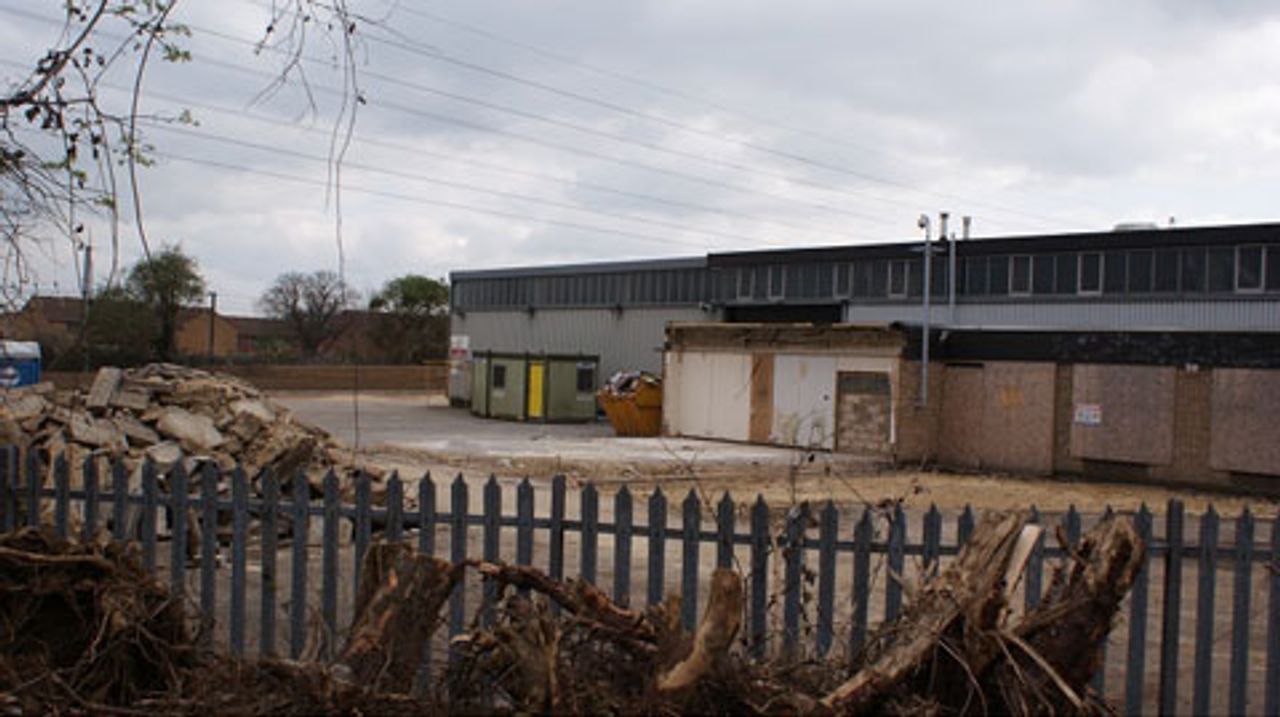 Stephen Woodbridge
Stephen WoodbridgePeterborough is a city of 180,000 in the east Midlands, 75 miles north of London. Its status as a boomtown is fast becoming a thing of the past under the impact of the global economic crisis. The expansion of the local economy was based on inward investment in financial services, retail and distribution. The growth of employment in these sectors was meant to offset the loss of thousands of jobs following the decline of the city’s manufacturing base.
Pay levels in Peterborough are below the national average, and full-time jobs have been replaced with temporary contracts. Even these are now in dwindling supply. The broader offensive that has been waged against the welfare state and deepening cuts in local government spending are making themselves felt in the ward of Bretton North and its population of 10,000.
The growth of Peterborough from the late 1960s was based on a central government initiative to overcome the overcrowding in London through the expansion of a number of so-called New Towns. Working class families were promised a new start, with decent housing and good job prospects that would be there for future generations.
 Fujifilm Electronic Imaging (formerly Crossfield Electronics) closed in October 2008
Fujifilm Electronic Imaging (formerly Crossfield Electronics) closed in October 2008The Bretton estate was one of a number of housing schemes built on the outskirts of the town. Industries moved in to take advantage of the relatively low wage levels, minimal business rates and transport links, particularly the railway connection. Among these were Molins (light engineering), Crossfield (photographic printing products), Acco (office supplies), Freemans (catalogue warehouse), Peter Pan Toys, and a plethora of smaller firms.
Employment in the city’s larger workplaces also continued to grow. Perkins diesel and other factories, including the brickyards, Hotpoint domestic appliances, and established engineering manufacturers Baker, Perkins and Brotherhoods, also increased their labour force.
Nearly all these companies have closed or undertaken large-scale downsizing.
In 2004, the local press and media, following a Conservative victory gaining control of the council, boasted, “Peterborough is on the verge of a new era of expansion”. Subsequent developments paint a very different picture.
In 1998, Molins closed, with a loss of 400 jobs. Peterborough’s largest employer, Perkins diesel engines, has gone from a workforce of 11,000 to 3,000 today, with fully 50 percent of these agency temps. Included in these closures and job losses are Crossfield, 4,500 jobs; Freemans, continual job losses up to 2009, until final closure with 500 jobs lost; Hotpoint, 423 jobs lost in 2008.
Brotherhoods and Baker Perkins (specialised engineering products) both moved their plants across the city, significantly reducing their workforces in the process. Pearl Assurance, having moved out of the London area and expanded its 3,000 workforce in the mid-1980s, closed in 2008.
The financial crisis that exploded to the surface that year had a massive impact on Peterborough. During the period September 2008 to January 2009, 3,153 jobs were lost.
The city has been a major destination for immigrant workers from eastern Europe, who took up onerous and casual employment in the surrounding rural economy picking and packing farm produce. These workers have suffered in tandem, rapidly finding that they too lost their jobs; one food-processing factory shed 400 jobs in one go. Some of the migrant workers who came here for a better life are now unable to get work and are homeless, often living under bridges and in the woods.
Unemployment in Peterborough stands at a 17-year high. According to the latest statistics, the current total of those claiming Job Seekers Allowance is 6,312, some 5.6 percent of those eligible. This compares to the national average of 4.1 percent.
The city now ranks among the poorest in the country. The local Evening Telegraph reported research conducted by the international credit agency, Experian. Peterborough is ranked as 62nd from the bottom in a survey of 326 local authorities, putting it alongside Coventry and parts of the northeast of England. The criteria used are based on eight poverty indicators, including long-term unemployment, child poverty and financial exclusion.
Industrial decline is mirrored in the deterioration of the infrastructure and public amenities, all manifest in the Bretton North ward.
As part of its initial development, the Bretton estate had a health centre, secondary school and shopping centre to cater for the local community. In 2007, the local education authority closed the Comprehensive School at Bretton centre. The school had been a community hub, with a swimming pool. All the pupils were transferred to schools scheduled to become academies well outside the area. The school was then flattened to make way for an Aldi supermarket.
The Tory-led council has also saddled the residents of Peterborough and surrounding areas with a potential £2 billion (US$2.6 billion) bill for the new City Hospital. Although costing £289 million (US$378 million) to build, the interest payments on the debt acquired through the Private Finance Initiative will be crippling to health provision for the whole district. The Health Trust management has just received a £46 million bailout from the government to cover the debt until April 2012. The debt owing is £56 million.
The hospital only opened in November 2010. Many workers have asked the question as to why Edith Cavell Hospital, built in 1988 at a cost of £20 million, was closed and eventually demolished at the same site. Workers are right to feel outraged that an important right, the National Health Service, could be mortgaged to private venture capital, with the agreement of the parties of the council chamber.
The Tory-led council is pushing through £75 million of cuts over the next five years as part of the coalition government’s “age of austerity”. Last year, 180 jobs were axed, and a further 75 are to go this year. In February 2012, Peterborough Council approved recommendations for its 2012 budget, reducing payments to its outsourced service providers such as Vivacity, which runs libraries, sports facilities, heritage and arts, by £100,000.
Payment to Enterprise, which runs waste and recycling, street cleaning, property design and maintenance, is to be cut by a similar amount.
Adult social care has not had its budget reduced, but it has been stated that efficiency savings need to be made. The council proposed to eliminate lollipop ladies (school crossing patrol officers) and replace them with volunteers. The fact that the safety of school children was viewed as such a low priority summed up the unjust and vicious nature of the cuts for many, and the council was forced to backtrack following a public outcry.
